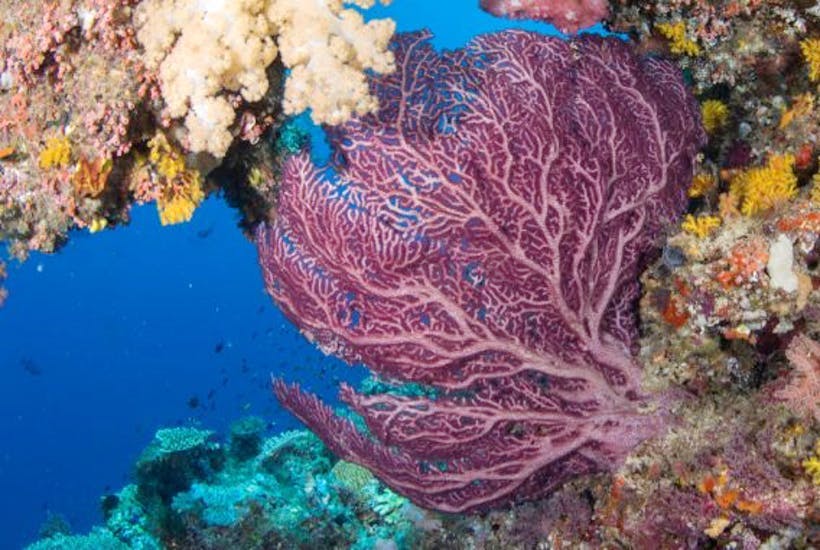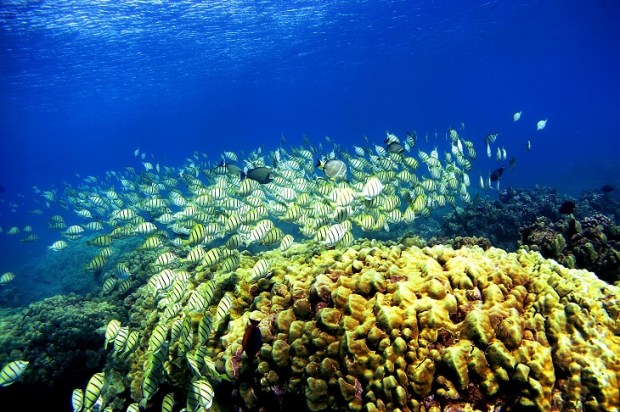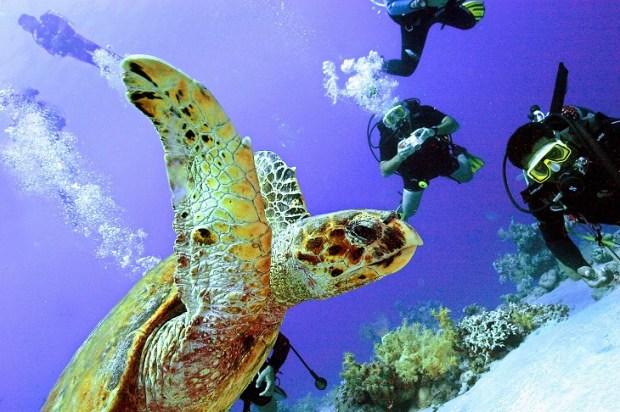The Australian Institute of Marine Science has just revealed that Great Barrier Reef coral coverage has recovered to be as good as, or better, than the average since 1985.
What an interesting contretemps to the extortion scam being perpetrated using the reef which relies on the false belief that it is in danger.
There are three major players –- the conservation groups, research scientists, and the Queensland government, and all are after money. This will come at the expense of the 930,000 people living north of Fraser Island on the Queensland coast.
The extortion threat is that if the federal government doesn’t do what each set wants, then the Reef will lose its World Heritage status. The catch is that it isn’t within the power of the federal government to “save” the reef, whether it needs saving or not – the benefits being demanded will go to the organisations making the claims, and will not affect the durability of the reef at all.
It is highly unlikely that the reef is at any risk. This is a structure which consists of 3000 reefs and islands stretching over 2,300 kilometres of coastline and covering 344,400 square kilometres up to 160 kilometres offshore. It has become extinct a number of times in the past as ice ages have caused sea levels to drop by over 100 metres, but never when the seas have been rising, as now.
It has recolonised the coast a multitude of times, most recently around 15,000 years ago. It has thrived in higher temperatures, and at higher sea levels than at present, including in the last 10,000 years. And it has seen off higher levels of atmospheric CO2.
Given this history the thought that the activities of less than a million people spread over a distance similar to the distance from Melbourne to Perth are causing a problem would be laughed out of the public bar in the Royal Hotel in any Queensland coastal city you could care to name.
The data backs this up. Water quality on the outside reef is good, and the biggest effect on water quality on inshore reefs is from the natural flushing of the rivers that flow down from the Great Dividing Range. The impact of farming and industry is miniscule.
Anyone who lives near the reef knows there is no threat, and that the reef is thriving, which is why the federal government is so keen to take global diplomats for a dive on it to stave off the listing -– their eyes will deny the propaganda.
Why do some scientists say there is a risk and have studies to “prove” it? This is a good question, but we know from work done separately by Professor Peter Ridd, and Dr Jennifer Marohasy, that much of the work is “suspect”.
Other scientists offer confirmation of the rotten state of academic reef research. An international team has made claims of fraud against James Cook University for research done on CO2 concentrations in sea water and fish behaviour. This is the same university who terminated Ridd’s employment because of his criticisms of colleagues.
But let’s assume, for the sake of argument, that there is a problem with the reef. Certainly the public relations blitz by conservation organisations has convinced around 70% of the Australian population that there is.
What can the federal government do about it? Apart from closing 2300 kms of coast to anything but tourism?
The advocates claim the government needs a better emissions policy. This is nonsense. Australia has been moderately successful in reducing emissions and the growth in China’s emissions every two years is equal to the totality of Australia’s emissions, which are only 1.16% of global emissions.
What we do with emissions may have a bearing on national prestige and claims on world leadership, but it will have negligible impact on world CO2 levels, and hence, in this scenario, the GBR.
So here’s how the scam works. The Reef is held “hostage” in concert by the various groups.
In a variation on the traditional hostage play, they pretend that the money isn’t for them, it’s for the reef.
So, the conservationists get enhanced panhandling capacity, as their supporters see them doing something. They also hope to close down a few mines, and farms, which further enhances panhandling capacity.
The research scientists get more and better funding, and for some of them this ironically means they get to spend more time exploring the beauties of the reef, something which they love to do. For others, it is a bigger career, overseas conferences (when they return) and the opportunity to build more complex models of what reefs ought to be doing rather than field trips.
And the Queensland government is after two billion dollars for their Renewable Energy and Hydrogen Jobs Fund. This will do nothing for the reef but might give them a leg-up over the Western Australian government that’s testing the same industry with mining entrepreneur Twiggy Forest.
The irony is that whatever happens, the reef will never “get it”. It will meet its fate in geological time, as all reefs have.
It is the residents of central, north and far north Queensland who will “get it”. No one will want to come to see an “endangered” reef, so their tourism industry will die and all the ancillary jobs with it.
The federal government sees the problem. So here’s the only solution available to them – instead of playing along with environmental groups start being sceptical. In this case, spend money on a proper audit of the existing reef science. And prosecute the case for carbon emission reduction in an orderly international framework, rather than according to what the nearest Extinction Rebellion cheer squad screams.
The golden rule of dealing with extortionists is, no matter what they demand, never give in.
Graham Young is Executive Director of the Australian Institute for Progress and founder and editor of On Line Opinion.
Got something to add? Join the discussion and comment below.
Get 10 issues for just $10
Subscribe to The Spectator Australia today for the next 10 magazine issues, plus full online access, for just $10.


























Comments
Don't miss out
Join the conversation with other Spectator Australia readers. Subscribe to leave a comment.
SUBSCRIBEAlready a subscriber? Log in